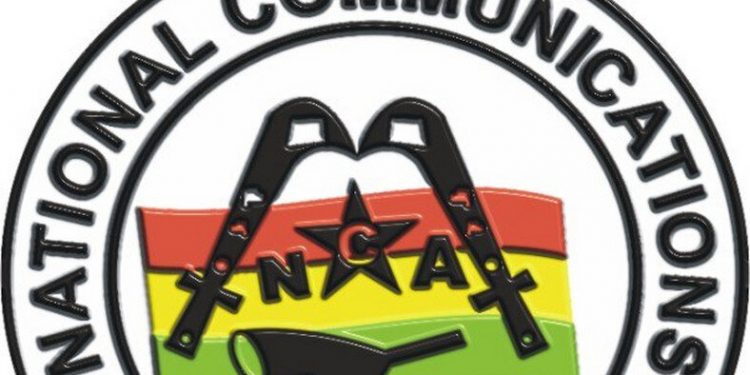Article 18(2) of the 1992 Constitution provides that:
“No person shall be subjected to interference with the privacy of his home, property, correspondence or communication except in accordance with law and as may be necessary in a free and democratic society for public safety or the economic well-being of the country, for the protection of health or morals, for the prevention of disorder or crime or for the protection of the rights or freedoms of others.”
As a layman without any legal education, I believe Article 18(2) of the 1992 Constitution protects the privacy of my mobile phone communication from any interference from Government. The exceptions provided by the Constitution are:
- If the interference is done in accordance with law; and
- If the interference is as may be necessary (in the context of COVID-19 and E.I. 63), for the protection of health.
The Preamble of E.I. 63 says:
“Whereas Ghana is committed to dealing with emergency situations, especially public health emergencies;
“Whereas there is an urgent need to establish an emergency communication system to trace all contacts of persons suspected of or infected by a public health emergency and identify the places visited by persons suspected of or infected by a public health emergency.”
No interpretation of the Constitution can reasonably argue that the framers anticipated Ghana would be under permanent emergency situations for which permanent structures must be put in place to perpetually interfere with privacy of the communication of all mobile phone subscribers, even when such measures cannot be justified to be necessary and even after the emergency situation has ended.
E.I. 63 is now law, once the President gazetted it on 23rd March 2020. As indicated in the last paragraph, I contend that it is unconstitutional for the President and Government to interfere with the privacy of my mobile phone communication at any other time except for emergency situations as the Preamble of E.I. 63 says. Even so, the measures must be necessary to deal with the said emergency.
So, first of all, the fact that E.I. 63 does not have any time limit or specified emergency limitation makes it unconstitutional. Secondly, given that the current emergency is the COVID-19 pandemic and E.I. 63 specifically states in the Preamble the purpose of the E.I. 63 as “an urgent need to establish an emergency communication system to trace all contacts of persons suspected of or infected by a public health emergency and identify the places visited by persons suspected of or infected by a public health emergency”, the measures provided for in E.I. 63 must be what is needed for contact tracing, not any others that unnecessarily violate the privacy of my communication in violation of Article 18(2) of the Constitution.
Now let’s evaluate some of the key measures provided for in E.I. 63:
- All roaming files of all mobile phone users to be made available on the NCA Common Platform. (Paragraph 1(3)(a)).
- All location log files of all mobile phone users to be made available on the NCA Common Platform. (Paragraph 1(3)(b)).
The two measures above are all that is needed, in my view, to be able to “identify places visited by persons suspected of or infected by a public health emergency”. Even so, it is unconstitutional and against the expressed objective of E.I. 63 itself to apply these measures to all mobile phone subscribers, even when they are not “persons suspected of or infected by a public health emergency”.
- A network operator or service provider shall make available all caller or called numbers. (Paragraph 1(2)(a))
- A network operator or service provider shall make available Merchant Codes (of mobile money vendors). (Paragraph 1(2)(b))
- A network operator or service provider shall make available Mobile Station International Subscriber Directory Number Codes. (Paragraph 1(2)(c))
- A network operator or service provider shall make available International Mobile Equipment Identity Codes and site location. (Paragraph 1(2)(d))
The four measures under Paragraph 1(2) are, in my view, not needed once you have the location log file and roaming files of “persons suspected of or infected by a public health emergency”. These measures violate the privacy of communication granted by Article 18(2) even though they are not necessary to undertake contact tracing to deal with COVID-19 (once you already have the location log file and roaming files).
Apple and Google this week jointly announced a technological solution for Coronavirus contact tracking that does not allow the authorities to know the numbers citizens call or the numbers of people citizens receive calls from, the mobile money transactions of citizens or any other mobile phone activities except to know who had come into close contact with a person who has tested positive for COVID-19. Most importantly, their solution “also provides the companies with the ability to easily disable tracing on a regional basis when the pandemic ends”.
Why is our government putting in place a system that allows it to violate constitutionally-enshrined privacy of the communication of all mobile phone subscribers, even after the end of the Coronavirus pandemic?
Apple and Google have shown that you can do contact tracing while respecting the privacy of communication of citizens. Of course, they operate in environments where they couldn’t possibly get away with some of the provisions of E. I. 63. Bottomline is, there are many technological solutions to achieve the desired goal of contact tracing. Our government has chosen the ones that allow it to achieve, in my view, another ulterior motive, which is, spying on political opponents and citizens in general!
Author: Kwaku Antwi-Boasiako









